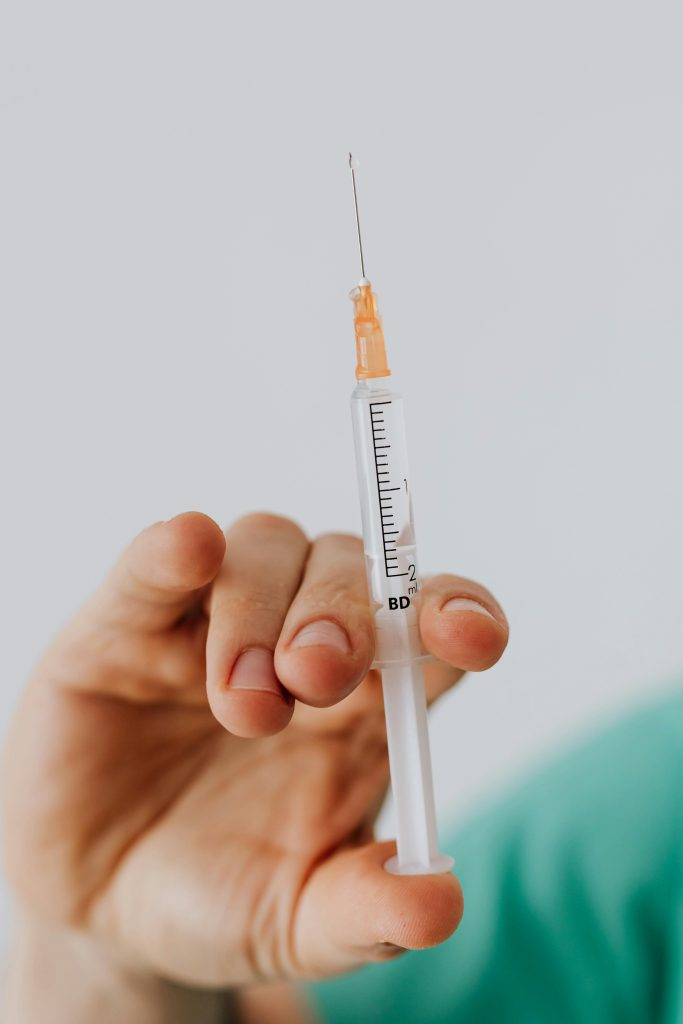5 Tips About Equine Vaccines
Western performance horse riders generally enjoy showing off what their horses can do by traveling to events and competing against others that love their sport. At bigger shows, this often means that people and horses from all around the country must come together under one roof, sharing cross ties, wash racks, tie rings, etc. When your horse is around other horses, though, it is possible for it to be exposed to diseases that it wouldn’t have picked up in its home environment.
This is where equine vaccines come in. Vaccines help prepare the immune system to respond quickly when a horse is exposed to an infectious agent. While they don’t guarantee complete prevention, vaccines can lessen symptoms and help keep from spreading highly contagious diseases.
Quarter Horse News asked Geneve Dundas, DVM, who owns Dundas Veterinary Services PLLC in Fort Worth, Texas, for recommendations on vaccinating horses, especially when preparing to haul to an event.
Vaccinate All Horses With Core VaccinesAccording to American Association of Equine Practitioners (AAEP) guidelines, all horses should be immunized with four core vaccines each year: tetanus, West Nile Virus and Eastern and Western Equine Encephalomyelitis (EEE and WEE). Rabies is also considered a core vaccine in some parts of the country, depending on county regulations and rules.
Vaccinating horses against these diseases is important because your horse can become infected even if it never leaves its home property. WEE and EEE are primarily contracted through mosquitoes and ticks; rabies exposure occurs through the bite of an infected animal; tetanus is present in feces and abundant in the soil; and West Nile Virus is transmitted by mosquitoes from birds to horses. All four diseases are deadly, and vaccines are instrumental in preventing infection.
 Mosquito * Photo from Pexels
Mosquito * Photo from Pexels
“These vaccines are necessary to aid these animals’ immune systems in fighting and modulating the severity of these diseases,” Dundas said. “Tetanus has an 80% mortality rate, EEE and WEE encephalitis are very devastating if not fatal, and rabies is fatal and communicable to humans. Some can recover from West Nile but often are no longer rideable, and severe cases result in patients that are a danger to themselves or others due to neurological symptoms.”
Take Extra Care With Show HorsesEven if your horse is vaccinated annually with the core vaccinations, you should ask your veterinarian about additional prevention if you’re planning to haul to shows. There are other highly-communicable diseases that can spread via horse-to-horse contact, and due to the layouts of stalls at showgrounds, many horses often share the same space. Hauling your horse can also stress its immune system, making it more susceptible to illness.
“Show horses travel a great deal and are exposed to many other horses, animals and environments,” Dundas said. “The stress of trailering, being stalled and showing means their immune systems are often fighting off a great deal of organisms, and stress can suppress the immune system. Vaccines aid them in staying healthy.”
One additional vaccine that is often mandatory for show horses is the flu/rhino vaccine, which protects against equine influenza and equine herpesvirus.
EHV Is Highly Contagious * Photo by Kristin Pitzer
* Photo by Kristin Pitzer
Equine herpesvirus, or EHV, is a DNA virus found in most horses. This family of viruses is named by numbers, and EHV-1, -3 and -4 pose the most health risks for domestic horses, according to the AAEP. Usually, infected horses see no serious side effects, but sometimes, for reasons unknown, one might develop a fatal neurological form called equine herpesvirus myeloencephalopathy.
EHV-1 and EHV-4 in particular are the most common species of EHV. EHV-1 can cause abortion, respiratory disease and neurologic disease, and EHV-4 can cause a nonfatal upper respiratory tract disease in foals. The viruses are spread by direct horse-to-horse contact via nasal secretions or through contact with physical objects that are contaminated.
Showgrounds can be a hotbed for EHV contagion: feed buckets, water buckets, grooming equipment, tack, trailers, and even your hands and clothing could all be contaminated if touched by a horse that is infected. The AAEP recommends that performance horses be vaccinated for EHV every six months, as vaccinated horses are more likely to produce a strong immune response without having clinical signs of the disease.
Flu Vaccines Should Also Be Given Every Six Months Vaccine syringe * Photo from Pexels
Vaccine syringe * Photo from Pexels
Equine influenza is also highly contagious and spreads via aerosolized droplets when an infected horse coughs. It can also survive on objects in the environment, much like EHV.
Equine influenza can cause respiratory disease, including fever, edema, enlarged lymph nodes and nasal discharge. Horses that are immunosuppressed, such as those that are on the road often hauling for World titles, can have an increased risk for infection and developing more severe symptoms.
Flu vaccines can offer protection against certain strains of equine influenza, but because the duration of that protection is limited, boosters should be given every six months. While some vaccines are given intramuscularly, there is also an intranasal vaccine that can achieve more rapid protection, which can be particularly useful in an equine influenza outbreak.
Take Additional MeasuresVaccinations are a good place to start your defense against communicable equine diseases, but there are other practices you should follow to keep your horse as safe and healthy as possible when on the road, Dundas said. For one, let your horse have as little contact with other horses as possible, especially when using communal facilities and equipment.
“Isolate as best as you can from other horses not from your barn — no touching noses, no sharing water troughs or buckets. Bring your own clean ones,” Dundas said. “When you fill buckets, don’t put the hose in the bucket. Instead, hold it over so the hose doesn’t get submerged.” Dundas also suggested stalling your horses near barn doors for better airflow and cleaning stalls two or more times per day to keep ammonia from building up, which will protect your horse’s lungs. Low-dust shavings, steamed hay and immune-boosting supplements can also be good ways to protect your horse’s immune system, provided those option work with your horse’s diet.
Mashups and APIs
- Home
- About Us
- Write For Us / Submit Content
- Advertising And Affiliates
- Feeds And Syndication
- Contact Us
- Login
- Privacy
All Rights Reserved. Copyright , Central Coast Communications, Inc.